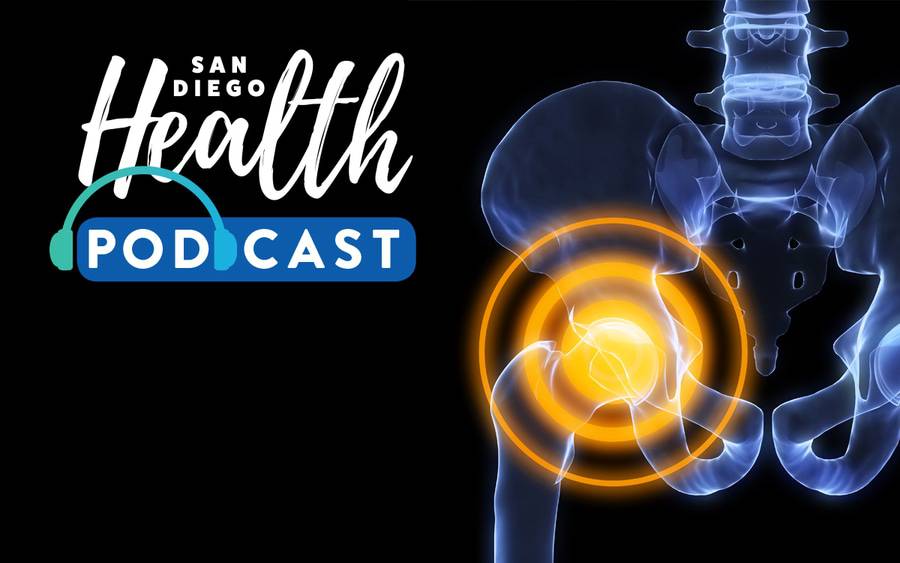When Is It Time to Get Hip Replacement Surgery? (podcast)
What you need to know before having hip replacement surgery

What you need to know before having hip replacement surgery
You’re a runner. You exercise on a regular basis. But now you’re starting to experience hip pain. There are many causes of hip pain. Among them is hip dysplasia, which occurs when there’s a defect in the hip joint.
Hip pain is also caused by osteoarthritis, which develops over time as cartilage in the joint wears out. Doctors initially treat these conditions with anti-inflammatory drugs and physical therapy. But when those aren’t enough, a hip replacement may be necessary. However, hip replacements aren’t as invasive as they used to be. Incisions are smaller, the recovery time is quicker and implants last longer.
In this episode of San Diego Health, host Susan Taylor and guests Christine Burke, a personal trainer who is an avid runner, and Scripps orthopedic surgeon Rina Jain, MD, discuss how Burke’s diagnosis of hip dysplasia led to a hip replacement.
Burke, 47, initially attributed her hip pain to overuse from a lot of running. She tried non-invasive treatments first, but when she couldn’t comfortably walk around Disneyland, she knew something more had to be done. After a hip replacement, she’s back on her feet. She continues to hike and do half-marathons, although it’s more walking than running. She’s also planning to return to Disneyland pain-free.